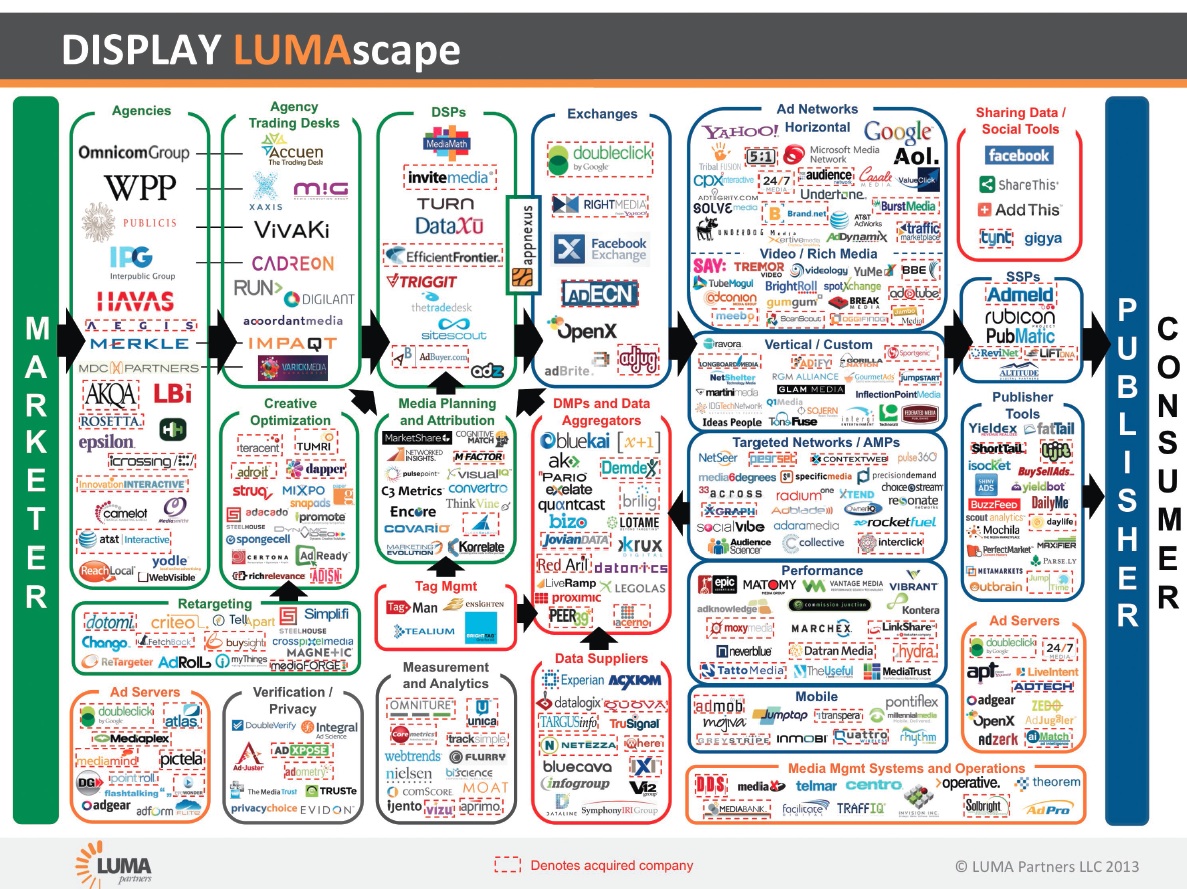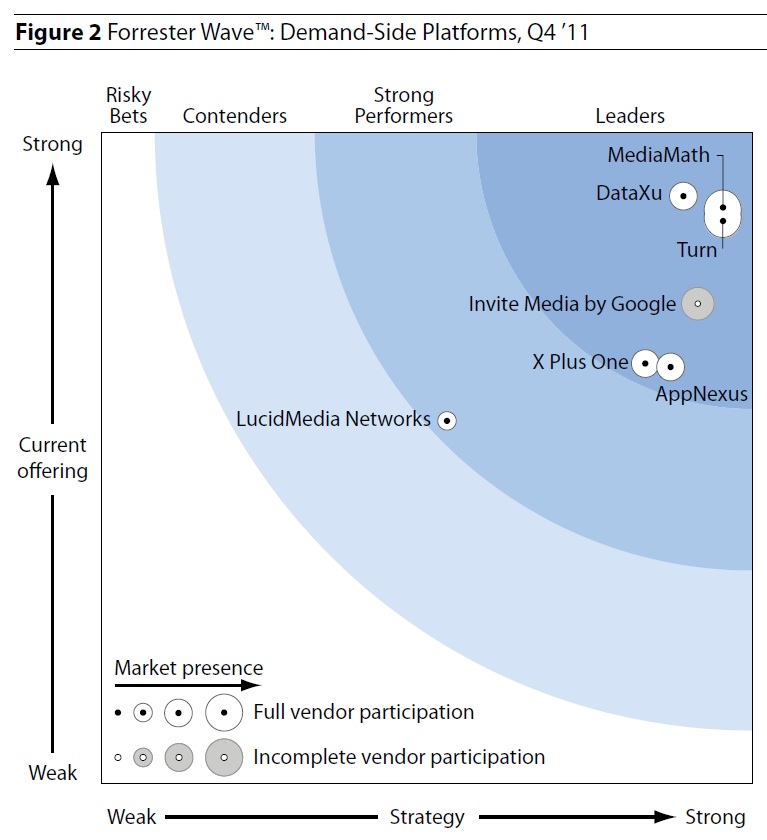
Stock traders used to sift through charts to make decisions on what to buy and sell. As a trader, you could take advantage of inefficiencies in the market before others did. As more robust computer systems were developed, Ph.D.s built sophisticated machine algorithms that made split second decisions on trades. While human traders still operate today, they bemoan the rise of high frequency trading as taking away advantages they used to enjoy. More than 84 percent of equity trading volume is executed by machines.
Online advertising used to be a relationship driven market. Agencies would strike deals with clients for large pre-determined CPM (cost per thousand) campaigns. They would then staff a large number of warm bodies on their big brand accounts. Then came the RTB (real time bidding) exchanges, DSPs (demand side platforms), and advertising APIs (application programming interfaces). Media buyers can now utilize transparent sources of ad inventory that target specific users for variable bid amounts in real time. Agencies have taken notice and are trying to protect their long standing brand relationships while the market moves towards more programmatic buying. In 2012 RTB accounted for nearly 13 percent of all U.S. display advertising spend.
Over the coming years we believe that the majority of online ads will become RTB enabled and big brands will increasingly turn to DSPs to help them more effectively manage their online marketing budgets. The programmatic nature of ad buying will erode the position of companies that rely on relationships and human decision making.
It's a Mad, Mad Advertising World -- The ad tech market has become increasingly competitive and the ecosystem can give you a migraine with the dizzying amount of companies:

These startups are emerging to tackle the growing online advertising market. As dollars flow into online spend they are also increasingly becoming RTB enabled. RTB allows a marketer to bid for individual user impressions in real time.
How RTB Works -- To provide an example of how RTB works, a user could be browsing the Internet and click on a link to a car forum. Before the page even loads, an exchange will send out the fact that the user is about to land on the car forum page and there is an open display banner ad that can be bid on. Ad buyers representing a car company can see that there is someone interested in cars and can instantly react by telling the exchange "I will bid $X to show that user an online ad." If they win the bid the media buyer can show their online banner ad. The user doesn't know that this real time bidding is occurring as the website loads normally for them displaying the car ad.
Rapid Growth in RTB -- The global online ad spend was estimated to be $89 billion in 2012. Still this figure is only 18 percent of the $502 billion total ad spend. The shift to online will continue as old forms of media continue to bleed budget. Programmatic buying is rapidly growing with many new exchanges opening. Facebook recently opened up its own RTB exchange and it seems other companies such as Twitter and Apple (with their mobile and tablet) could do the same. BSkyB, a $13 billion market cap company that provides pay television and home communication services in UK and Ireland, recently stated that "Sky is putting 35 percent of its display budget through RTB, and there is no reason it won't be 50% by 2013." Given the enthusiasm from media buyers and the efficiency that bidding brings to the market, we believe that the majority of online ads will quickly become RTB enabled.
Intelligent Programmatic Buying Required -- The increase in online ads becoming RTB enabled has flooded the market with ad inventory. Deciding where to spend ad dollars at scale isn't effective unless there is intelligence around whom and where to target. Marketers often use a DSP as the high frequency trading machines that make these types of real time buying decisions at a large scale. These DSPs create special algorithms that learn over time what types of users, ads, and websites perform the best. They take these complex models and optimize where the ad dollars are being spent so that their customer can receive the best conversion and value for their ad dollar.
There are a number of strong entrants in the DSP space:

Advertising dollars are still in the early stages of shifting to DSPs, but reception from brands has been positive. Brands want a neutral third party that will be RTB exchange agnostic. They also want to cut down on the complexity of using multiple vendors. One Fortune 500 brand we spoke with said that they had relationships with 6 different ad networks and a few agencies. When they moved to a DSP they were able to stop juggling multiple relationships and focus on one platform. As the advertising world increasingly moves programmatic, there will be more transparency to ad buying. Campaigns will be judged on specific conversions and concrete KPIs (key performance indicators).
The Shift Is Happening -- The future of online advertising is programmatic buying. A large financial institution that we spoke with has an agency that staffs several hundred employees on their account. They began testing a DSP and it performed better than all other ad buying campaigns that the agency managed. There will always be a place for the consultative services that an agency can provide both on generating the creative for ads and navigating the crowded ad tech ecosystem. However, they will need to evolve by using, acquiring, or developing programmatic tools on behalf of their clients. If not, they may go the way of the human trader and find that machines are taking their place.